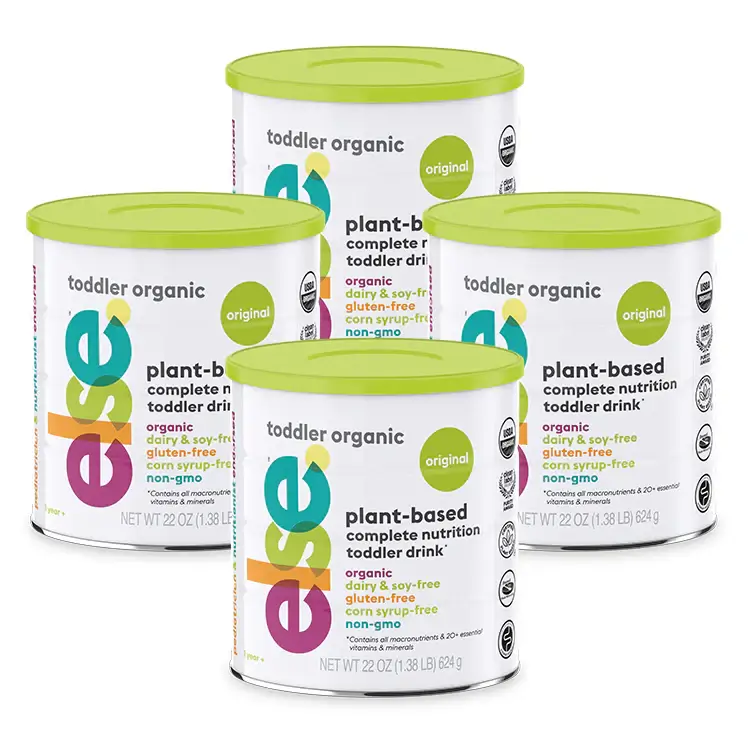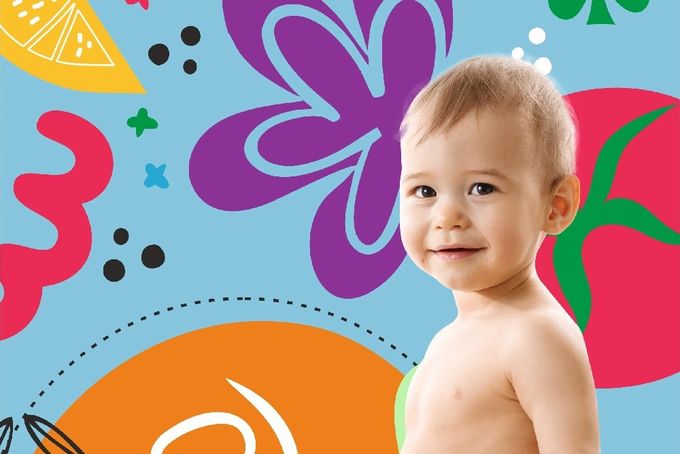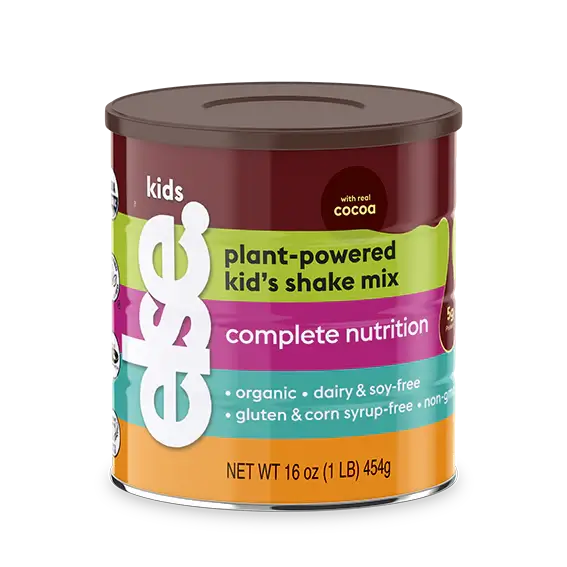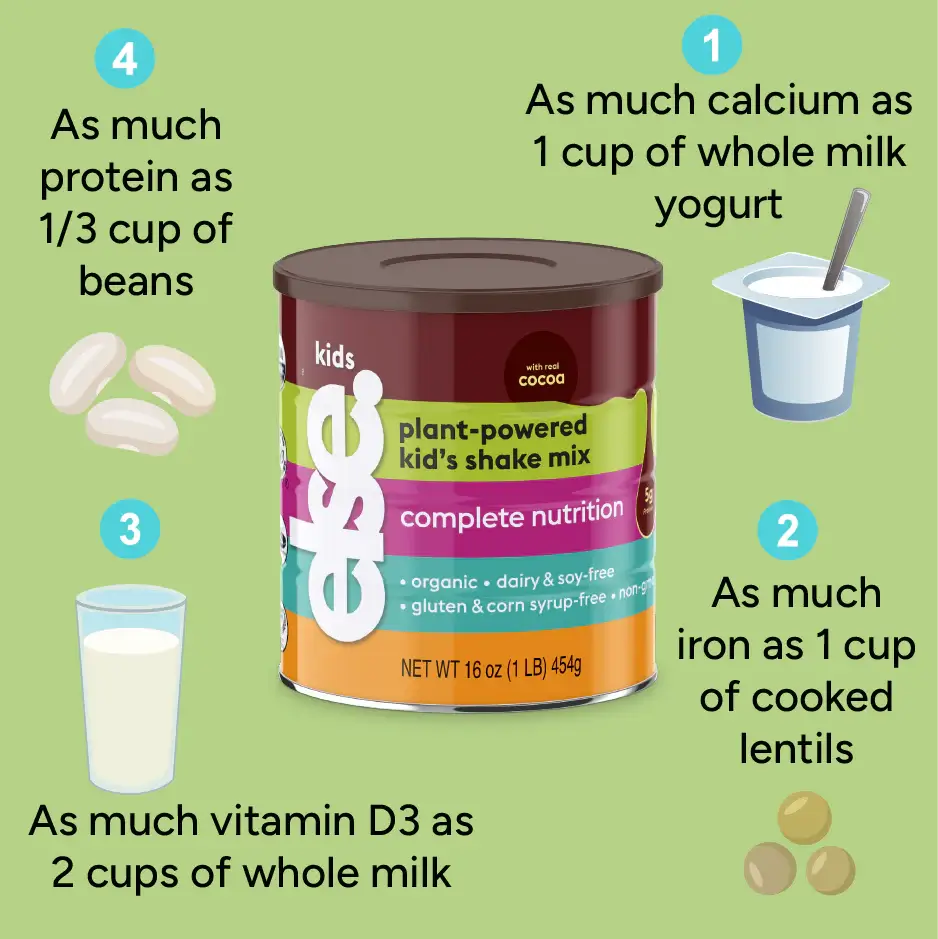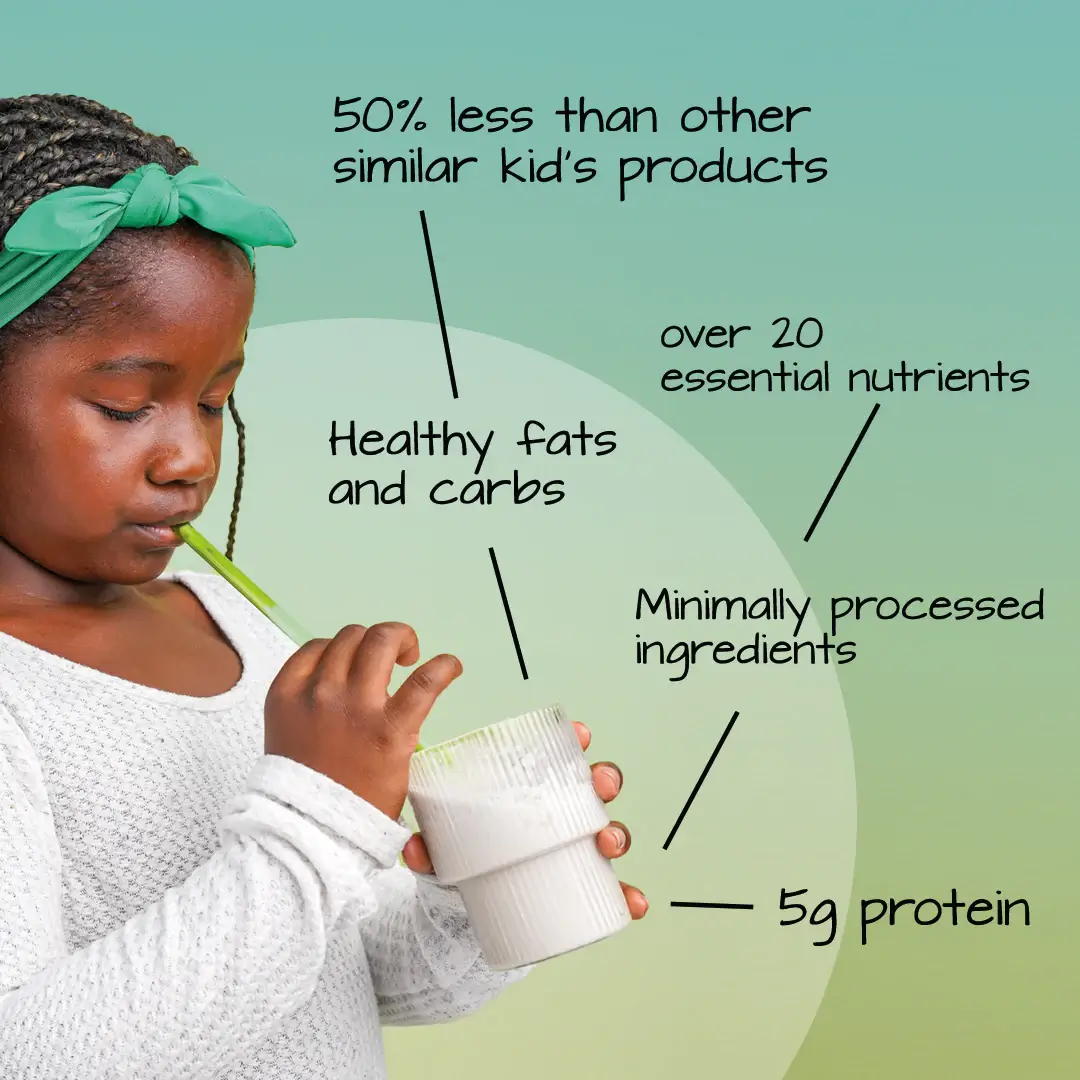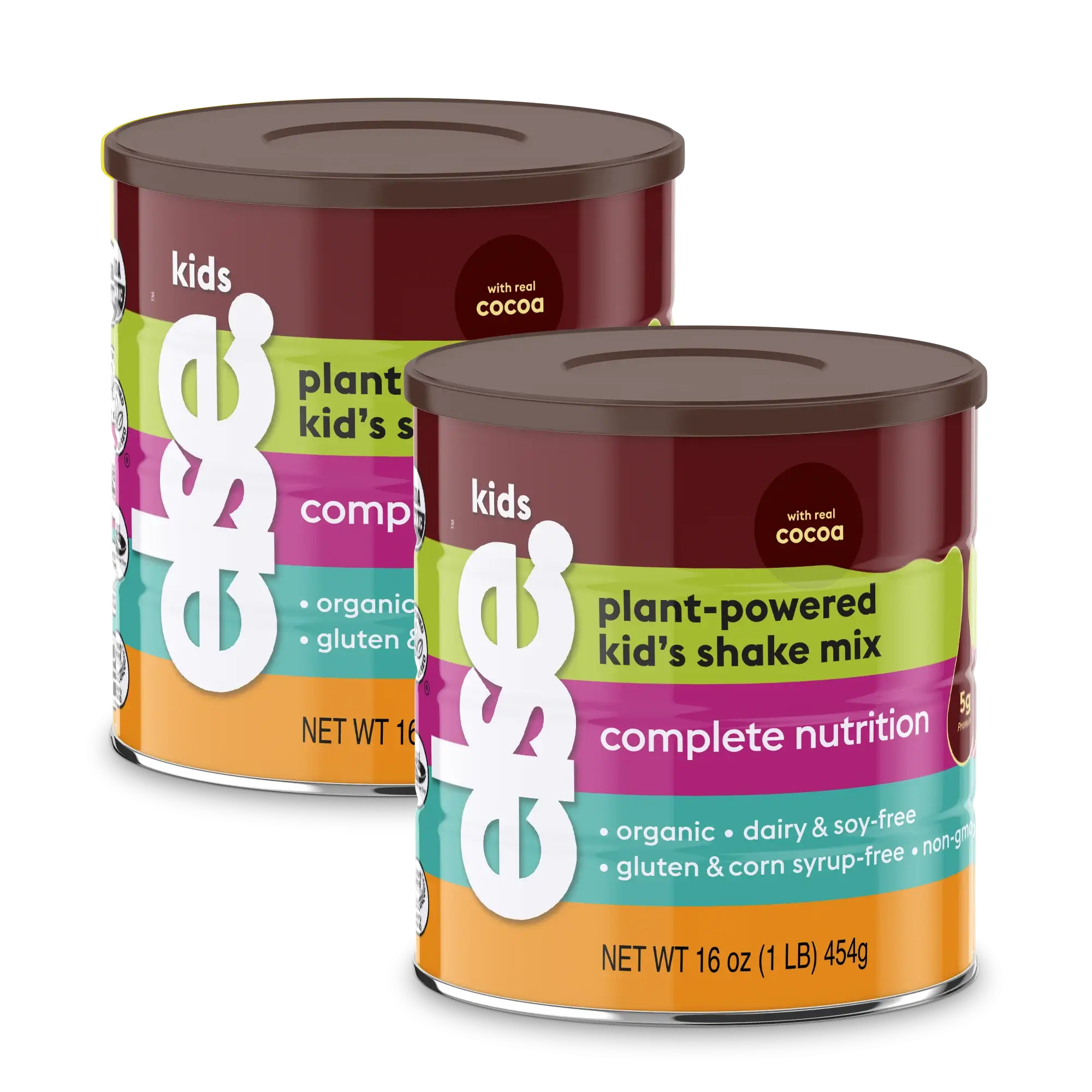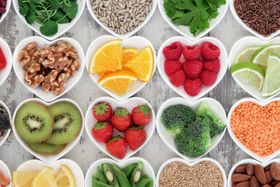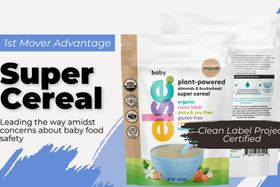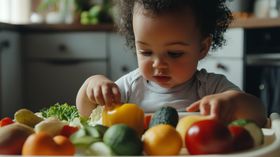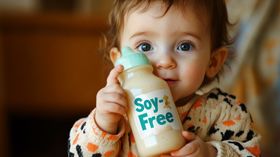Food to Help Promote Healthy Weight Gain in Toddlers
Updated June 11, 2024
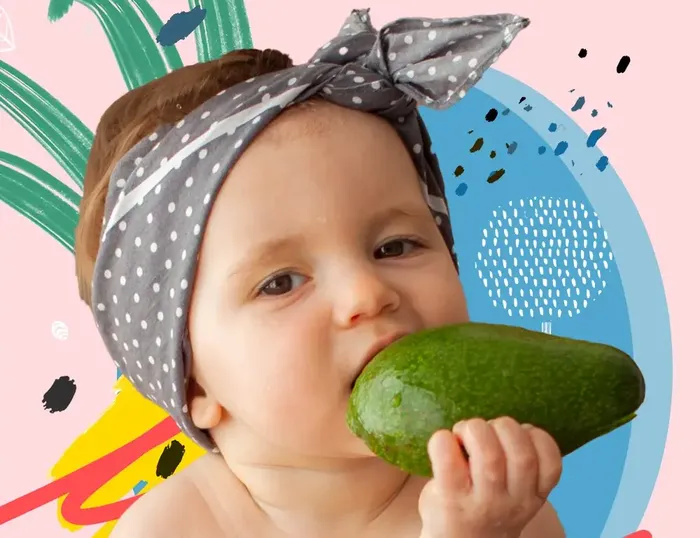
Are you looking for ways that promote your toddler's healthy weight gain? This article outlines nutritious foods and strategies to support your child's growth and development, making mealtime a breeze for parents.
A common concern among parents and caregivers of young children is whether their child is at a healthy weight for their age and height. Kids are constantly on-the-go and have unique nutritional needs that sometimes require high calorie foods. If you’re wondering whether your child is not gaining weight as he is expected to, it’s important to know how to identify this and adopt the best approach to creating a nutrient-dense meal plan for them.
Is My Toddler Gaining Weight Properly?
A frequent question around raising young kids is whether they’re at a healthy weight. This may include whether a child is gaining too much, or too little, weight for their age and height. If this is a concern you’re experiencing, know that you’re certainly not alone.
It’s normal to worry about the growth and development of our children, especially because it’s easy to compare their pattern with their peers or older siblings.
However, it’s most important to remember that your child is unique and that his or her growth pattern will also be unique to them. Not all variations in weight compared to their peers is a cause for concern. Else Nutrition's Plant-Based Toddler Formula is made from buckwheat, almonds, and tapioca, which provide healthy carbs that may help your child gain weight properly.
The best way to determine whether your toddler needs to gain weight is to speak with your pediatrician. They keep growth records on file and can evaluate whether your child is continuing to grow at a linear rate, or if there’s been stagnation. They will also be able to help clarify whether there’s a reason to intervene.
There are also some physical indications you can look for at home that may suggest a need to have that conversation with the pediatrician.
Some signs of an underweight toddler may include:
- They have a lack of baby “fat”, or the extra weight that’s normal for babies and toddlers to carry around their midsection, arms, thighs, and cheeks
- They are not moving up in the next clothing size for pants and shirts as you might expect
- They appear physically thin or small for their age compared to same-aged peers
If you notice any of these physical factors and are concerned, consult your pediatrician to see if your baby requires toddler formula. In the meantime, there are some things you can do at home to help your toddler put on some healthy weight.
Why a Toddler May Be Underweight
There may be several reasons why a child may be underweight during the toddler stage, and it may be difficult to pinpoint with expertise at first.
Some reasons why young kids can be underweight early in life include:
- Difficulty latching when breastfeeding as an infant, leading to not sucking enough and not gaining weight as expected
- Reflux interfering with feeding as an infant
- An undiagnosed food allergy or intolerance
- A malabsorption condition or digestive disorder
- Neurological or developmental conditions
- Certain medications or drug interactions that suppress appetite
However, for many children, the issue around weight gain often has to do with nutritious meals.
How to Help Your Toddler Gain Weight and Grow?
Not surprisingly, the most important area of focus when it comes to toddler weight gain is what they’re eating.
The foods and beverages that your child consumes are what provides all of the nutrients they need in terms of vitamins and minerals, but also all of the protein, carbohydrate and fat they need for energy and growth.
We all know that toddlers are active little humans, constantly running around and burning off their energy. But this activity also uses up many of the calories they consume in a day. Finding a balance is important.
Just as is the case of weight for adults, eating too few calories for the amount of activity a toddler gets will result in weight loss - or stagnation in weight gain. If they are not growing as expected , it’s important that they are consuming more calories than they are burning, however it is important not to have empty calories but those coming from nutrient-dense foods.
Plus, young kids often need more calories than we realize. For a frame of reference, pre-teen children often need as many calories as a full-grown adult simply because of their higher activity levels and more demanding metabolic rate.
Fortunately, there are plenty of calorie-dense foods that can be easily incorporated into your little one’s diet for the purpose of weight gain.
» Discover alternatives to Enfagrow toddler formula
Foods for Toddlers to Gain Weight
When planning your toddler’s weight gain menu, it’s still best to prioritize healthy foods.
Toddlers are at an age where learning about food and eating is still a new concept. What you teach your child to eat early on in life also helps to set the stage for how and what they will eat as they get older.
In other words, while it would be easy to feed a toddler fast food items that are high in calories and fat for weight gain, this is not a healthy approach. Instead of relying on these types of foods all the time, it’s helpful to know what healthier food choices are energy-dense, or contain a substantial amount of nutrients and calories in a small serving size.
After all, toddlers generally don’t eat huge quantities, especially in one sitting. One of the keys to supporting weight gain in young kids is to pack as much nutrition, into a small portion of food at a time, and offer these multiple times throughout the day.
If you’re looking for high-calorie nutritious foods for toddlers, here are some examples of healthier plant-based choices:
Avocado
Avocado is a wonderful high-calorie food for toddlers because of its versatility, neutral flavor, and soft consistency. It’s because of these characteristics that avocados are very often among the first solid foods given to babies anyway.
Just half of your standard avocado will provide 120 calories, 11 grams of healthy fat, 1.5 grams of protein, and 5 grams of fiber.
As with other plant foods, the fats found in avocado are unsaturated, which have benefits for the heart and overall health. For kids in particular, healthy fats are a critical part of their diet and should make up around 30-40% of their diet. Avocados are a fun texture which makes it a great finger food.
» Read more about pediatrician's review on nutritional and healthy diet for kids
Nuts and Seeds
Nuts and seeds are packed with healthy fats, protein, and calories. Note that nuts and seeds in their whole, raw form are a choking hazard for children under age 4-5 years old. The exceptions are tiny chia, hemp, or ground flax seeds that can easily be mixed into other foods.
However, nut and seed butters are a great calorie-dense food for toddlers who need to gain weight. To make sure they are presented in an age-appropriate consistency, thin nut and seed butters by mixing them with water into more of a drizzle. This helps prevent them from becoming a gob in the mouth, which could present a choking hazard for young children.
Some good choices are thinned peanut, almond, cashew, sunflower, or sesame (tahini) seed butter as long as your child doesn’t have an established nut allergy.
One tablespoon of nut butter will provide around 100 calories, 8 grams of unsaturated fat, and 4 grams of protein.
Olive Oil
Kids need good sources of healthy fats for their growth and development. Certain oils - like extra virgin olive oil - are a great option to help toddlers gain weight.
Olive oil can be used to drizzle over roasted or steamed vegetables or fresh salad and even mixed into foods like oatmeal, yogurt, smoothies, soups, hummus, or applesauce.
A little bit goes a long way. One tablespoon of olive oil provides around 125 calories and 14 grams of unsaturated fat.
Soy Foods
Soy foods, like tofu, are rich in calories, protein, and healthy fats, and can be a perfect consistency for young eaters.
Try roasted and seasoned tofu cubes, or making a tofu breakfast scramble in a skillet, with olive oil and chopped veggies.
For example,¼-cup serving of extra firm tofu contains 90 calories, 10 grams of protein, and 10 grams of unsaturated fat and one cup of fortified soy milk can provide around 120 calories, 7 grams of protein, and 4 grams of fat.
» Learn more about protein needs of infants and toddlers
Complex Carbs
Complex carbohydrates pack a better nutritional punch than refined carbohydrates, which include foods like white breads and pastas and packaged snacks.
A few healthy complex carbs for toddlers include whole grain breads, beans, lentils, sweet potatoes, quinoa, brown rice, whole-wheat or legume-based pastas, corn, and peas.
Else Toddler & Kid Formulas
Else Plant-Based Complete Nutrition for Toddlers is a USDA organic, soy-free, dairy-free, gluten-free whole food and plant-based complete nutrition drink for kids who need help gaining weight after the first year of life.
Mixed with water, added to smoothies, or even stirred into mashed potatoes or oatmeal for an extra dose of calories and nutrition.
For children who are a little older (over 2 years old), try the Plant Protein Nutritional Shake for Kids. It comes in a variety of delicious flavors and is ideal for active kids, those going through selective eating phases, or kids who just need a little more nutrition. This product contains plant-based protein, healthy carbs and fats, and over 20 essential nutrients for growing children. It is a great product to help them gain weight or children who are suffering from picky eating. Else can help them get to a healthy stage of child growth making sure they eat enough food to meet their nutritional needs.
>> Find out whether your child needs a weight-gain shake
High-Calorie Meals for Toddlers
Now that you have some ideas for healthier energy-dense foods to offer your child, you may be wondering how to include them in meals regularly. Healthy eating is important, feed your child things they will enjoy and that will be good for them.
Here are some high-calorie meals and snack ideas for toddlers:
- Avocado toast sprinkled with hemp seeds
- Steamed broccoli drizzled with extra virgin olive oil
- Smoothie made with frozen fruit, cashew butter, and pitted dates
- Vegetable soup made with cashew cream added
- Refried bean quesadillas with guacamole
- PB&J sandwiches
- Prepared rice or pasta with butter and peas
- Toast with mashed banana and peanut butter.
- Crackers or veggie sticks served with hummus, bean dip, or guacamole
» Discover the best nutritious kids shakes
Other Tips to Help Toddlers eat well and grow
In addition to offering high-calorie foods and planning energy-dense meals and snacks for your toddler, consider these tips:
- Don’t let them fill up on beverages before meals. This can displace room for calorie-rich foods when they sit down to eat. Keep a water bottle filled throughout the day, rather than offering a glass of water right before or with food. Also, it’s best to avoid sugar sweetened drinks that only offer empty calories or are a substantial source of added sugar, like fruit juice and sodas.
- Don’t limit activity. While it makes sense that a child who is less active and eating more, will be more likely to gain weight at a regular rate, it’s important for kids to run around so make sure they don’t stay indoors all day and limit their “screen time”.
- Offer energy-dense meals and snacks every 2-3 hours. Rather than a rigid three-meals-a-day pattern, kids who need to gain weight often consume more when they’re presented with smaller portion sizes on a more frequent basis. Small tummies can only hold so much food.
- Make nutrient-dense foods available to your child when hunger strikes. Kids thrive on routine, so offering meals and snacks on a regular basis as much as possible is a good idea. However, if your child tends to become hungry more often than usual, or needs a snack after playing, keep energy-dense choices on hand that can easily be grabbed in place of a low-calorie option.
- Speak to a dietitian. Once you’ve spoken with your pediatrician about weight gain concerns and confirmed that your child would benefit from interventions, consider speaking with a dietitian. They can help you create a healthy meal and snack plan tailored specifically to your child, ensuring that a good balance of calories, vitamins, minerals, and other nutrients is being met.
If your toddler needs to gain weight, don’t panic.
For many young kids, this is simply an issue of calorie content, which can be remedied by incorporating more high-calorie healthy foods into your 1 year old feeding schedule. Always speak with your pediatrician and/or a dietitian if you have concerns about your toddler’s weight and nutrition needs. Don't worry, there are plenty of supplements that can help your toddler with weight gain. Check out Else Nutrition's wide range of minimally processed, carb-rich products, they are the best choice.
The content and advice provided in this article is for informational purposes only and is not a substitute for medical diagnosis, treatment, advice for specific medical conditions. Always consult a pediatrician to understand the individual needs of your child.




